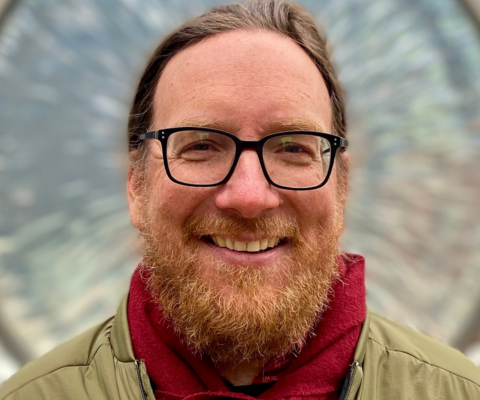Michael J. Hathaway
Anthropologist explores roots of global movement in Indigenous political activism
With support from a 2022 Guggenheim Fellowship, Anthropologist Michael Hathaway will be dedicating a year to advancing his research on the rise of Indigenous networks in the Pacific Rim.
Director of the David Lam Centre for Asian Studies at Simon Fraser University, Dr. Hathaway studies global environmentalism and Indigenous rights in Asia. He is currently researching a series of all-Indigenous delegations in the 1970s that travelled to China from Japan, Canada, Australia and New Zealand. The Indigenous groups returned to their home countries inspired to challenge colonial systems.
The visits were at the invitation of Chinese Communist Party (CCP) Leader Mao Zedong, explains Dr. Hathaway. “He invited a delegation from Canada, three delegations from Japan, a delegation from Australia, and one from New Zealand.” And around the world, emerging activists in Indigenous communities started reading the Little Red Book – a collection of quotes from the CCP leader that promoted the Maoist version of socialism.
“He tried to convince them that in China, the people he referred to as “ethnic minorities” actually had the best situation of anywhere in the world. Delegates visited a well-funded university where ethnic minority professors taught ethnic minority students, and read books in their own languages. There was nothing like this that existed in the delegates’ own countries. And so they were often very impressed.”
The visits started to change their perspective, says Dr. Hathaway. “Rather than thinking very locally or nationally, they started to understand themselves as global citizens.” Some groups later hosted other delegations in their home countries to advance their shared work.
Today in New Zealand, where Dr. Hathaway is spending several months researching that country’s experience with the movement, there are only a few survivors from a 1975 trip to China. Hathaway is trying to understand how the visit transformed the delegation’s political strategies, priorities and agendas.
In Japan, the delegation to China started language revitalization efforts when they returned. Around this time, in Canada, under the leadership of George Manuel, a member of the Secwepemc Nation in British Columbia, the World Council for Indigenous People was created, fostering this movement.
Dr. Hathaway’s work in New Zealand has resulted in an unexpected side benefit: access to archives about events in Canada. “It’s interesting that in New Zealand, I’ve been able to find archives by Maori about events in Canada that are not in the Canadian archives.”

